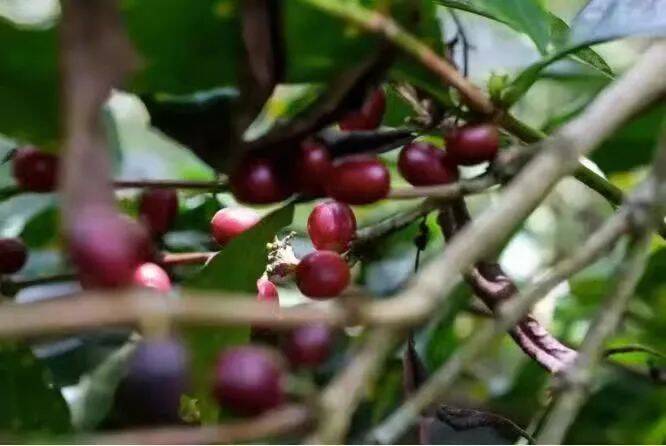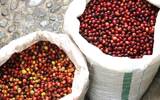Why is the Arabica Pacamara said to be the archrival of Rose Summer? Is it better than claw and Java?
Yes, "Pacamara", it is also a bean seed trying to win the throne of Rose Summer. In his book "Bean Hunter", Mr. Xu Baolin gave it the title of "Rose Summer Enemy". It sounds very competitive, so what is the origin of Pacamara?
Pacamara Camara (Pacamara) is a hybrid with very complex lineages. It was born in 1958 in the breeding room of the Salvadoran Coffee Research Institute. It is complicated because its bloodline comes from two varieties of Arabica.
Pacas (Pacas): "Pacas" is one of these two variants. It belongs to the bourbon variety. Pacas was originally known as Don Alberto Pacas, a Salvadoran farmer who selected high-capacity bourbon and moved it to his farm in 1935. Until one day in 1956, his "Ka Yo" found that the Bourbon on the farm produced more fruit than other bourbon coffee trees. Boy, I directly invited a professor from the University of Florida to identify it, and it turned out that it was a genetic mutation in bourbon! As a result, the variety was named after the owner of the farm, Pacas.
Marago Gippi (Maragogype): it is the best-known variant of Ironpickup and another source of blood for Pacamara! Because its size is more than three times larger than the average Arabica species, people have given it the nickname "elephant bean"! The name Marago Gippe is taken from the place where it was born. It was discovered in 1870, because of its large size, it is often prone to "scorch on the outside" when baking, that is, it is scorched on the outside, but not ripe on the inside, so when baking elephant beans, people often use "low heat and slow cooking" to cook it slowly.
And Pacamara is a hybrid of their two varieties, so they use their respective name prefixes to merge, which is called "Pacamara" (Pacamara).
Although Pakamara was born in 1958, it did not immediately set foot on the road to the top! Because it did not inherit the good pedigree of Pacas multi-yield, the yield was much lower than that of the two. Moreover, it perfectly inherited the "big grain gene" of the elephant bean and became the "big grain" Arabica second only to the elephant bean! Large particles are not only difficult to bake, but also difficult to deal with raw beans! Because, in the peeling of Pacamara, its particles are often stuck in the holes or gaps of the machine because its particles are too large. Second, most washing plants lack experience in dealing with large coffee fruits, let alone extra sieves with larger mesh to specially deal with Pacamara! The frequent occurrence of such accidents made people realize at that time that conventional treatment could only work on beans of normal size, and that if it was a Pakamara, which was two to three times the size, the equipment of the entire processing station needed to be replaced. re-adjust to the Pacamara kit. What kind of farmer would have done that at that time? Therefore, it has been silent for half a century!

Until 2007, Pacamara won the double championships of the "extraordinary Cup" held in Guatemala and Honduras (two championships at the same time), and even swept the top three of El Salvador, beating many of the summers who came to compete. It was only then that people realized what a terrible advantage this variety has. "richness and variability" is the flavor advantage produced by the combination of two excellent varieties. As a result, people have begun to follow the gourd, planted the Pacamara! In the following years, it has occupied the top place in the list of major events, and people began to regard it as a rookie species on a par with Rose Summer! And Mr. Xu Baolin also gives it the title of "strong rival in Rose Summer" in the book.
-END-
Front Street Cafe
No. 10 Baoqian street, Yandun road, Dongshankou, Yuexiu district, Guangzhou, Guangdong province
Important Notice :
前街咖啡 FrontStreet Coffee has moved to new addredd:
FrontStreet Coffee Address: 315,Donghua East Road,GuangZhou
Tel:020 38364473
- Prev

Can hot water and warm water be used to make cold coffee? What are the characteristics of the cold extract they make?
Wait! I know you have something to say, but before that, let's listen to the front street. Here's the thing: generally speaking, cold-extracted coffee takes as long as 8 to 12 hours, one because the extraction rate is slow at room temperature / cold water, and the other is because it takes time to ferment, so we usually put it on.
- Next

As global coffee prices rise, farmers are reluctant to sell coffee.
According to foreign media reports, due to the reduction in coffee supply, farmers want coffee prices to rise and are unwilling to sell coffee, leading to deserted trading in the Vietnamese coffee spot market. In the central plateau, the largest coffee growing area in Vietnam, the latest spot price of coffee is 63500 dong / kg to 66000 dong / kg.
Related
- What grade does Jamaica Blue Mountain No. 1 coffee belong to and how to drink it better? What is the highest grade of Blue Mountain coffee for coffee aristocrats?
- What are the flavor characteristics of the world-famous coffee Blue Mountain No. 1 Golden Mantelin? What are the characteristics of deep-roasted bitter coffee?
- Can I make coffee a second time in an Italian hand-brewed mocha pot? Why can't coffee be brewed several times like tea leaves?
- Hand-brewed coffee flows with a knife and a tornado. How to brew it? What is the proportion of grinding water and water temperature divided into?
- What is the difference between Indonesian Sumatra Mantinin coffee and gold Mantinin? How to distinguish between real and fake golden Mantelin coffee?
- What does bypass mean in coffee? Why can hand-brewed coffee and water make it better?
- Unexpected! Ruixing Telunsu lattes use a smoothie machine to foam milk?!
- % Arabia's first store in Henan opens into the village?! Netizen: Thought it was P's
- Does an authentic standard mocha coffee recipe use chocolate sauce or powder? Mocha Latte/Dirty Coffee/Salty Mocha Coffee Recipe Share!
- What is the difference between Vietnam egg coffee and Norway egg coffee? Hand-brewed single product coffee filter paper filter cloth filter flat solution!

